Find projects
Welding
The analysis and development of welding processes with corresponding process parameters represents the core of research activities in the field of thermal joining technologies at SKZ. Here, research topics initiated by industry or the SKZ itself are worked on first and foremost. In addition, the SKZ supports industrial companies in direct cooperations in the implementation of new ideas and the solution of problems.
The SKZ thus represents a competent, independent and neutral contact partner on the subject of "welding of plastics". A large number of welding machines from all well-known manufacturers are available in our joining laboratories. Almost every welding process is covered. This ensures that every problem can be dealt with in a practical and individual manner. Due to regular maintenance and close cooperation with the manufacturers, we can always fall back on up-to-date and ready-to-operate machines.
Services
In order to avoid subsequent failure costs, it is particularly important that the design or component layout is suitable for welding. We will be happy to advise you here. Numerous SKZ projects focus on the development and optimization of welding processes. Extensive technical equipment is available for this purpose. The methods and joining processes applied in the research projects can also be used as a service.
"The quality must fit". The customer is sure of that. But the definition and determination of this quality is not always obvious and very product and customer dependent. With 60 years of experience and participation in national standardization committees, we are happy to assist you in the testing of welded or bonded plastic products.
We will find the right measurement technology (soft and hard sensor technology) for you: non-destructive or destructive or offline, atline, online or inline. We perform accelerated time-lapse tests and investigate the long-term and aging behavior of your products. We also help you analyze quality data with regard to digitalized evaluations (including Big Data). And if there are no suitable measurement techniques or test methods, we will (further) develop some for you.
As experts in the field of plastics technology, we strive to pass on the knowledge we have acquired over decades to our customers. From material development and manufacturing processes to the application of various testing and measuring methods - in our numerous practice-oriented training courses, you as a participant will acquire the necessary knowledge in dealing with plastics as a material. This begins with the selection of the right materials and compliance with production-oriented design rules, continues with the correct handling of equipment and machines for the manufacture and processing of plastic components and ends with the correct understanding of quality criteria and the associated use of testing and measuring tools.
Bringing together people from different areas of the company and from different sectors to exchange experiences and technical know-how is also a top priority for us, in addition to the pure transfer of knowledge. Our numerous specialist events provide the ideal venue for a free exchange of ideas. Renowned speakers from a wide range of industries and excellent technical presentations make the SKZ conference popular meeting places within the plastics industry.
We accompany our customers along the entire value chain, from material development to series production, with the aim of finding the best solution. For the manufacture of plastic end products, it is often also necessary to resort to various joining processes, depending on the material, geometry and application. Since joining is usually one of the last steps in the product development process, it makes sense to consider it at an early stage in product planning. Based on many years of experience in the field of "joining of plastics", SKZ will be happy to assist you in product development as well as in questions concerning the joining of molded plastic parts. The earlier we are involved in product planning and development, the sooner corrections and errors can be avoided later.
Modeling and simulation tools for joining processes are used as an important tool for product development as well as for predicting joining suitability. In addition to different modeling techniques, various simulation programs are available.
Would you like to obtain information about your welded joints that is not visible to the naked eye? SKZ offers the integration and, if necessary, individual adaptation of non-destructive inline measurement technology for process monitoring or as a laboratory testing method. In this way, for example, typical defects such as blowholes, air inclusions or a felling adhesion of joining partners can be reliably detected in order to optimize joining processes and reduce scrap.
For this purpose, SKZ offers a cost-neutral assessment of your inspection task and enables comparative examinations with different methods based on ultrasound, terahertz, thermography and shearography, among others.
Contact:
Giovanni Schober | +49 931 4104-464 | g.schober@skz.de
State-of-the-art equipment for best results and products
A look inside our technical center. On more than 1,000 square meters, we offer you service at the highest level. Challenge us. Together we will find a solution for your problem.
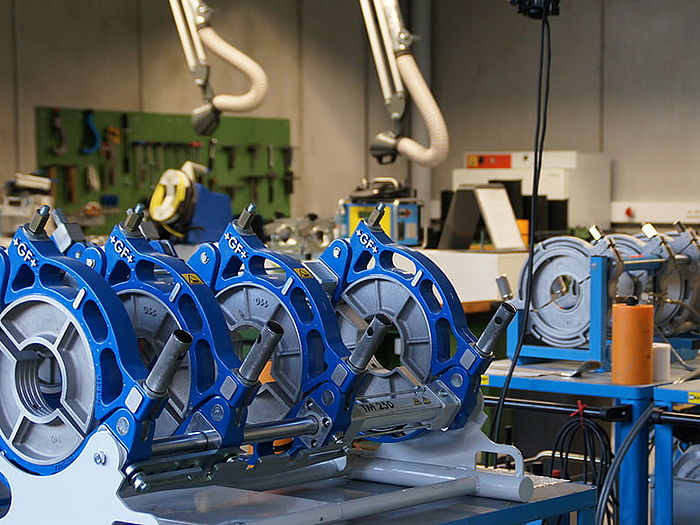
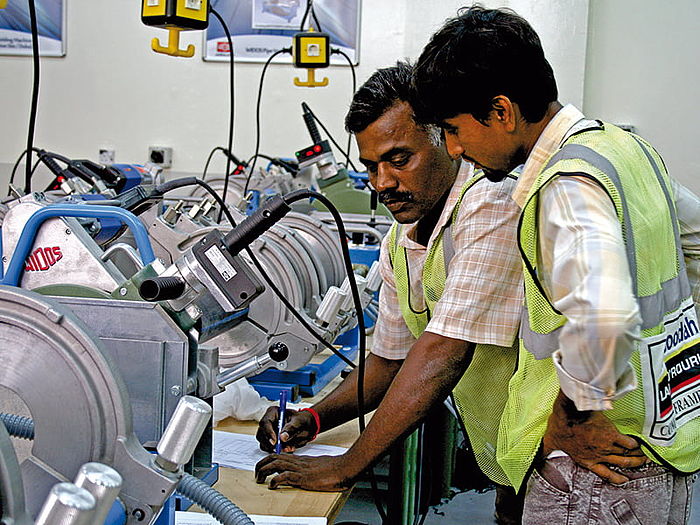
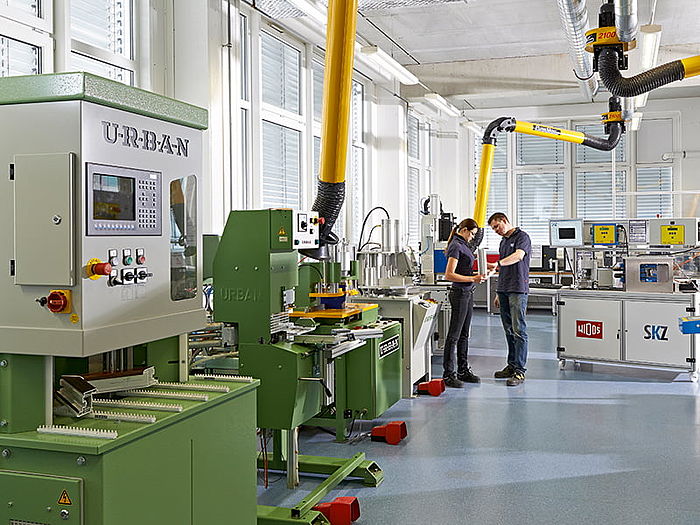
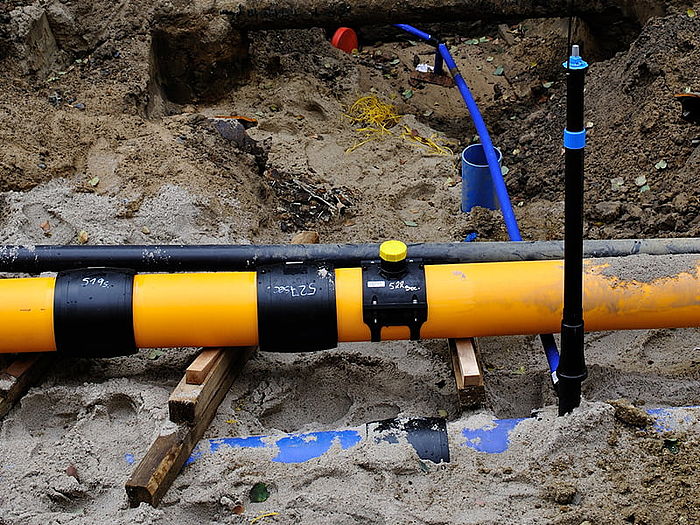
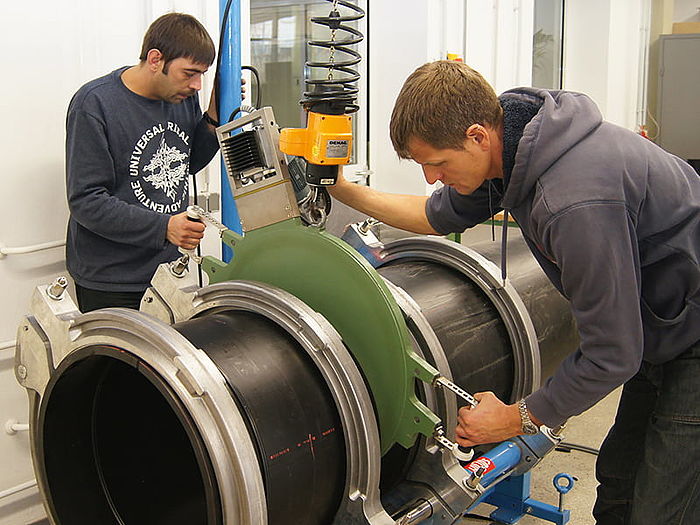
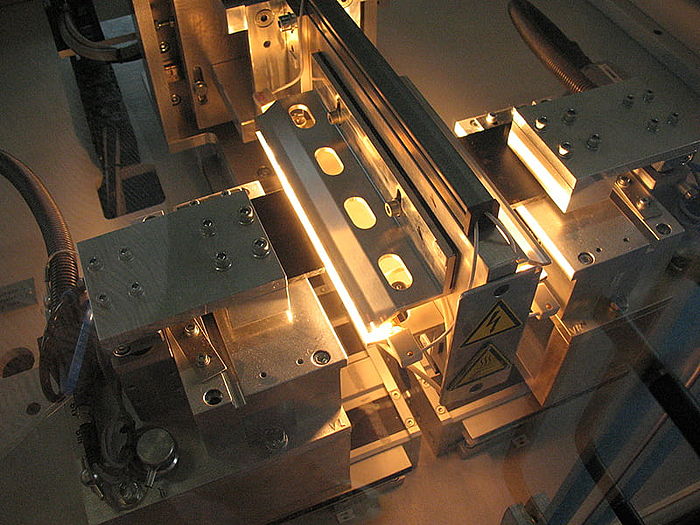
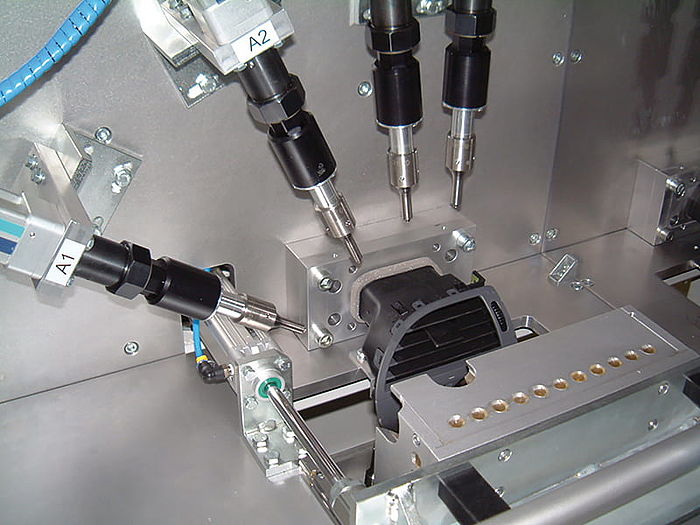
Technical equipment
- Heating element butt welding
- Infrared welding
- Hot plate socket welding
- Heating coil welding
- Ultrasonic welding
- Vibration welding
- High frequency welding
- Hot gas welding process
- Series welding process
- Sealing
- Tubes
- Profiles
- Plates
- Containers
- Foils / Packaging
- webs
- Serial products
- Special products
- Polyolefins such as polyethylene, polypropylene (PE, PP)
- polyvinyl chloride (PVC)
- Polyamides, polyphtalamides (PA, PPA)
- Wood-plastic composites (WPC)
- Fluoroplastics such as ethylene-chlorotrifluoroethylene or polyvinylidene fluoride (ECTFE, PVDF)
- Reinforced and highly filled materials
- High-performance plastics such as polyetheretherketone, polyimide or polyphenylene sulfide (PEEK, PI, PPS)
- New materials
Analytics in the field of welding of plastics
- Determination of tensile strength according to DIN EN ISO 527
- Tensile shear test on lap welded specimens DIN EN 1465
- Three-point bending test according to DIN EN ISO 178
- Technological bending test according to DIN EN ISO 7438 and DVS 2203-5
- Long-term properties cyclic, dynamic
- Artificial aging according to DIN EN 927-6, DIN EN 1297, DIN EN 1898, DIN EN 12224, DIN EN 12543-4, DIN EN 13523-10, DIN EN 75220, DIN EN ISO 4892-1, DIN EN ISO 4892-2, DIN EN ISO 4892-3, DIN EN ISO 11507, DIN EN ISO 11895, DIN EN ISO 11997-2
- Infrared cameras for monitoring welding processes (WE, US, HS, IR, LB, etc.)
- High-speed camera systems, for monitoring the process steps in fast welding procedures
- Automatic welding stand for reproducible manual welding (WE, WZ, WF, etc.)
- Reflected and transmitted light microscopy (weld and residual melt layer thickness evaluation)
- X-ray photoelectron spectroscopy (XPS/ESCA)
- Molecular spectroscopy (FT-IR, Raman)
- Electron microscopy (SEM-EDX/ESEM)
- Calorimetric analysis (DSC) for the determination of melting enthalpies as well as glass transition temperatures
- Heating stage microscope for visual evaluation of transformation and melting processes (temperature range from -196 to 600 °C)
- Thermogravimetry for determining decomposition points and filler contents
- Temperature and thermal conductivity measurements
- Thermomechanical analysis to determine expansion behavior
- Dynamic mechanical analysis (DMA) to investigate viscoelastic material behavior







